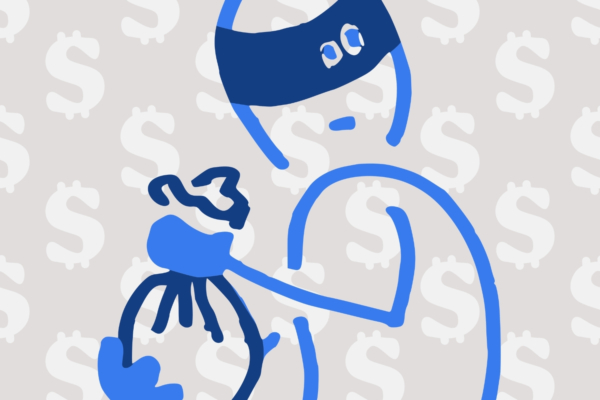
Credit Privacy Numbers: Avoid These Fictional Numbers

In this age of cybersecurity threats and identity theft, you can never be too careful with your own personal information. This is especially true when it comes to your Social Security number. It’s understandable that you’d be hesitant to put your SSN on any document if you didn’t have to!
Unfortunately, some scammers have found a way to take advantage of consumers’ fear with something known as a credit privacy number (CPN)— a nine-digit number that you can theoretically use instead of your actual SSN.
A credit privacy number may sound like a good idea, but it can cause a whole slew of problems. More importantly, in many cases a CPN is actually illegal to use. Here’s what you need to know about credit privacy numbers and avoiding scams.
What are credit privacy numbers?
A credit privacy number can also be called a credit profile number or a consumer protection number. This number is marketed as a convenient way to not expose your SSN. Any time you would normally need to supply your SSN, like on a credit application or medical document, you can use the CPN instead.
The supposed benefit is that this alternative number can protect you from exposing your real SSN to privacy risks. It is also marketed by phony credit repair companies as a way to get a “fresh start” with better credit. Both of these benefits are false.
According to the scammers, all of the benefits of a CPN can be yours if you’ll only pay the required fee. But what you won’t hear from these scammers is that the practice is illegal, the number is meaningless, and worse—might even be a real Social Security number stolen from someone else, often a minor or someone’s deceased relative.
The implications for CPNs are serious.
What happens if you use CPNs?
There are many negative consequences to using a CPN. If you fall victim to this scam, you may face:
- Legal repercussions for fraud: It is illegal to lie or misrepresent your Social Security number on a credit card or loan application. CPNs are not a valid replacement for your SSN, so using it may result in fraud charges, which can carry hefty penalties.
- Legal repercussions for committing identity theft: If the CPN you are using is a real Social Security number belonging to someone else, your use of that number could expose you to identity theft concerns and the risk of fines or even jail time for such actions, all for using a number you thought was going to make you safer.
- Identity theft: Yes, purchasing a CPN may cause the very thing it claims to prevent. These scammers often require disclosure of your valid SSN to establish your CPN, which can be sold or reused once a dispute is sent to the credit report agency and will often result in identity theft.
- Failure to improve credit: If you’re using a CPN with the hopes of improving your credit, you’re out of luck. CPNs are not recognized by any governing body or agency. Because of this, any positive credit history you think you are building up through an account using a CPN will be judged null and void.
In short, a credit privacy number will only cause headaches. The best way to protect yourself from CPN scams is to avoid them altogether.
How to Protect Yourself Against CPNs
The best way to protect yourself against the potential consequences of using a CPN is to never purchase one. The pitches can be persuasive and can lure you into thinking they are a great way to repair your credit. You may even hear that CPNs are legal or that they have been endorsed by lawyers or credit card companies.
Don’t believe the hype.
This is all part of the scam, and its goal is to take your money while leaving you with a nine-digit number that is probably meaningless or worse—might position you as an accomplice to identity theft.
How to Spot a Credit Repair Scam
Unfortunately, credit privacy numbers aren’t the only type of credit repair scam out there. The Federal Trade Commission offers these helpful tips to help you identify other types of scams.
A credit repair company is likely fraudulent if:
- They insist on payment first, before any work has been done
- They advise AGAINST contacting the credit reporting agencies directly
- They tell you to dispute information in your credit report, even when it’s accurate
- They tell you to give false information on your applications for credit or a loan, including using the CPN as your SSN
- They can’t or won’t explain your legal rights regarding what they can do for you
If you are looking to hire a company specializing in credit repair, be sure to know your rights under the Credit Repair Organizations Act. Fraudulent credit repair companies won’t play by these rules. Be sure to research all companies thoroughly before providing your personal information, including your SSN.
How to Improve Your Credit Safely
The important thing to remember when it comes to improving your credit is that there is no quick fix. Credit repair takes months— or even years— when you do it the right (and legal) way. Here are the first steps toward repairing your credit history:
- Pay all of your bills on time.
- Pay down debt and keep your credit utilization low.
- Limit the amount of new debt that you take on and avoid opening new lines of credit.
For more information on repairing your credit, check out our blog “How to Raise Your Credit Score 200 Points”. If something sounds too good to be true, it probably is. Don’t fall into the trap of fast and easy credit repair scams.
Avoid CPNs
With identity theft on the rise and credit scores playing an increasingly significant role in our lives, it’s never been more important to know how to protect your financial information against scams. Credit repair scams like CPNs may sound promising but carry large, lasting consequences. Stay safe by avoiding credit privacy numbers altogether.
Become an Amplify Member
Every Amplify account holder enjoys fee-free banking. That means no overdraft, maintenance, or other banking fees cutting into your pocket.


